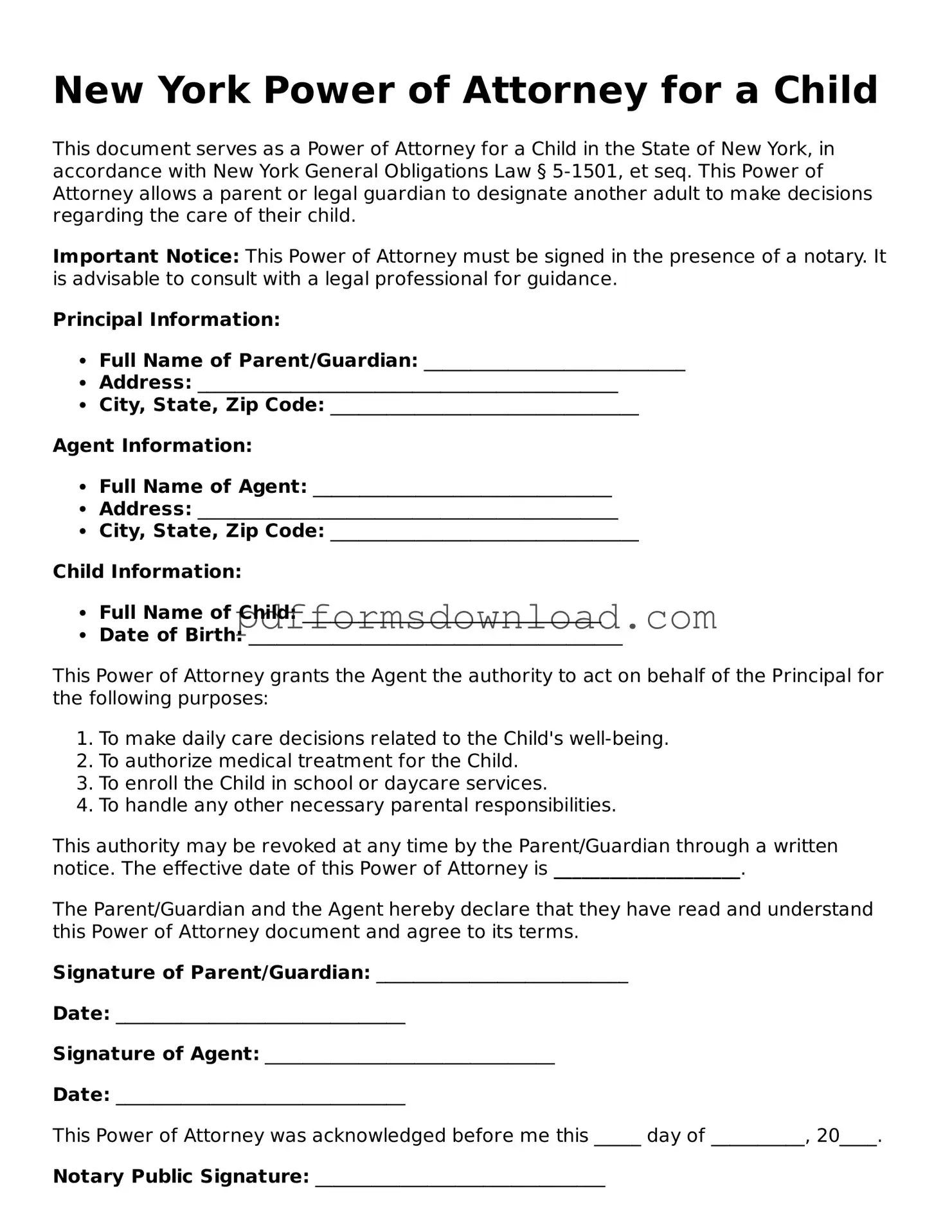What is a Power of Attorney for a Child in New York?
A Power of Attorney for a Child in New York is a legal document that allows a parent or guardian to designate another adult to make decisions on behalf of their child. This can include decisions about healthcare, education, and other important matters when the parent or guardian is unavailable. It ensures that the child’s needs are met even in their absence.
Who can be designated as an agent in this Power of Attorney?
The agent can be any adult that the parent or guardian trusts, such as a relative, friend, or neighbor. It is important to choose someone who is responsible and capable of making decisions in the best interest of the child.
What decisions can the agent make on behalf of the child?
The agent can make a variety of decisions, including those related to medical care, education, and extracurricular activities. However, the specific powers can be outlined in the document, allowing the parent or guardian to limit or expand the agent's authority as needed.
Do I need to have the Power of Attorney form notarized?
Yes, the Power of Attorney for a Child form must be signed in front of a notary public to be legally valid. This helps to verify the identities of the parties involved and ensures that the document is executed properly.
Is there a specific age requirement for the child?
There is no specific age requirement for the child in the context of the Power of Attorney. However, it is generally used for minors, typically under the age of 18. The form can be used for children of any age as long as the parent or guardian is designating someone to act on their behalf.
How long does the Power of Attorney remain in effect?
The Power of Attorney for a Child can remain in effect for a specific period or until the parent or guardian revokes it. If no end date is specified, it typically lasts until the child turns 18. Parents should keep track of the document and update it as necessary.
Can I revoke the Power of Attorney once it is established?
Yes, the parent or guardian can revoke the Power of Attorney at any time as long as they are of sound mind. This can be done by providing written notice to the agent and ensuring that the revocation is documented appropriately.
What happens if the agent cannot fulfill their duties?
If the designated agent is unable to fulfill their responsibilities, the parent or guardian should have a backup agent named in the document. If not, they may need to create a new Power of Attorney to designate someone else.
Are there any limitations on what the agent can do?
Yes, the parent or guardian can specify limitations in the Power of Attorney document. For example, they may choose to limit the agent’s authority to certain types of decisions or set conditions under which the agent can act. It’s important to clearly outline these limitations to avoid confusion.
Where can I obtain the Power of Attorney for a Child form?
The Power of Attorney for a Child form can typically be obtained from legal stationery stores, online legal service providers, or local government offices. It is advisable to ensure that the form complies with New York state laws and is properly filled out to avoid any issues.

